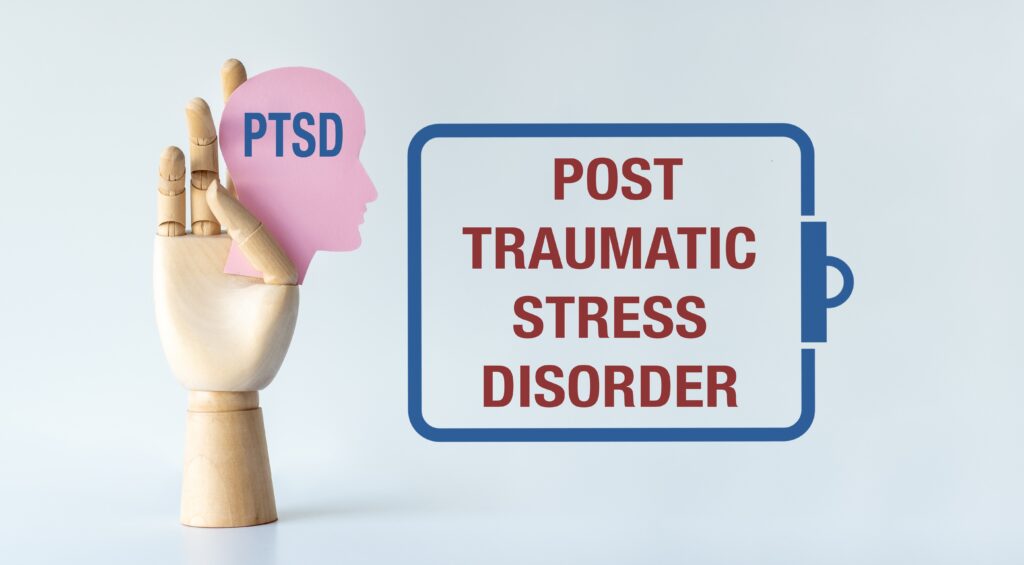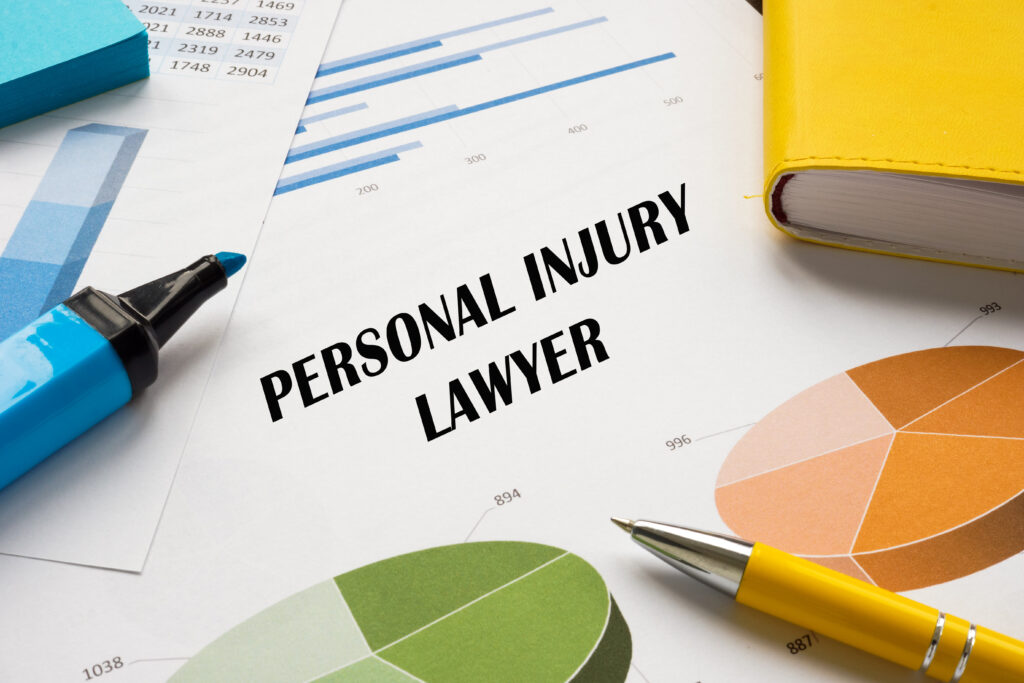Yes, you can make a claim for Post-Traumatic Stress Disorder (PTSD) after a car accident in Alberta. The law recognizes that psychological injuries are just as real and debilitating as physical ones. A successful claim provides compensation for your pain and suffering, lost income, and other financial hardships caused by the trauma.
Proving a psychological injury, however, presents unique challenges. Insurance companies may question the severity of your condition, and you may face the intricacies of Alberta’s Minor Injury Regulation.
This is not a burden you should have to carry while you are recovering. An Alberta car accident lawyer can help you understand the full impact of your injury and build a case that reflects it. Let us handle the legal framework, so you can focus on your well-being.
To discuss your situation, call MNH Injury Lawyers at (888) 664-5298 for a no-obligation consultation.
GET YOUR FREE CONSULTATION NOW!
PTSD 101
What does PTSD feel like after a collision?

PTSD is a persistent psychological condition with symptoms that can disrupt your entire life. It can develop after a catastrophic event, like a motor vehicle accident, making a return to normal life feel impossible.
Think of it like a faulty alarm system in your mind that is stuck in the “on” position. The danger has passed, but the alarm keeps ringing, triggered by everyday sights and sounds—the screech of tires, a certain intersection, or even getting behind the wheel.
Common signs we see in clients who have been through a traumatic accident include:
- Re-experiencing the event: This may take the form of unwanted, vivid flashbacks or recurring nightmares about the crash.
- Avoidance: You might find yourself going miles out of your way to avoid the accident scene or refusing to drive altogether.
- Negative changes in mood and thinking: This can include persistent feelings of fear, anger, guilt, or emotional numbness. You might lose interest in activities you once enjoyed.
- Hyperarousal: Feeling constantly on edge, irritable, easily startled, or having difficulty sleeping and concentrating are also common.
How Alberta Law Acknowledges Psychological Harm
Is Emotional Distress a Valid Injury in a Legal Claim?
Absolutely. In Alberta, your compensation claim is not limited to physical injuries. The law provides for two main categories of damages.
Pain and Suffering (Non-Pecuniary Damages):
This is compensation for the non-financial toll the accident has taken on your life. In simple terms, it acknowledges the physical pain and the emotional distress you have endured because of the collision. These damages are meant to compensate for the intangible loss of your quality of life, including the impact on relationships and the inability to enjoy hobbies.
For a PTSD car accident claim, this includes the impact of anxiety, depression, sleep disturbances, and the loss of enjoyment of life.
Financial Losses (Pecuniary Damages):
These are the measurable, out-of-pocket costs resulting from your injuries. In simple terms, pecuniary damages are the tangible financial losses you have suffered.
This includes:
- Loss of income: Both past wages and your diminished ability to earn an income in the future are covered.
- Cost of future care: This can include ongoing therapy and other necessary treatments to manage your PTSD.
Alberta’s Two-Part System for Accident Compensation
Where Does Compensation Come from After an Accident?
Alberta uses a system that provides both immediate support and long-term accountability. This involves mandatory no-fault benefits from your own insurer and the right to sue the at-fault driver for further damages.
Part 1: Immediate Support with Section B “No-Fault” Benefits
Every auto insurance policy in Alberta includes Section B benefits. These are available to you regardless of who was at fault for the accident, providing immediate access to funds for treatment and to cover initial income loss.
For PTSD, Section B can cover necessary treatments like psychological counselling. The maximum coverage for all medical treatments under Section B is $50,000 per person, available for up to two years after the accident.
It also provides a disability benefit if you are unable to work. This benefit covers 80% of your gross weekly earnings, up to a maximum of $600 per week.
It’s important to note: these benefits do not begin until the eighth day of your disability. The first seven days are an unpaid waiting period.
Part 2: Holding the At-Fault Driver Accountable Through a Tort Claim
Section B benefits are a starting point, but they rarely cover the full extent of your losses, especially for a serious psychological injury. A tort claim is a lawsuit filed against the at-fault driver’s insurance company. This is where we pursue the full and fair compensation you are entitled to for your pain and suffering and any financial losses that exceed what Section B provides.
Will My PTSD Claim Be Capped by the Minor Injury Regulation?
What Is the Minor Injury Regulation and How Does It Affect PTSD?
The Minor Injury Regulation, or MIR, places a limit on the amount of pain and suffering damages for injuries classified as “minor.” This cap is a set amount that changes with inflation, and a lawyer can confirm the current figure for you.
A “minor injury” is defined as a sprain, strain, or whiplash-associated disorder (WAD) that does not result in serious impairment. A diagnosis of PTSD, on its own, is not considered a minor injury and is not subject to the cap.
The Nuance: The law was amended for accidents after November 1, 2020, to state that any “clinically associated sequelae” of a minor injury—whether physical or psychological—is included under the cap.
- In plain English: If you have a minor neck sprain and experience some temporary stress that resolves as the sprain heals, an insurer might argue that stress falls under the cap.
- However, a standalone, diagnosed psychological condition like PTSD that arises from the trauma of the accident itself—not just from the physical injury—is not a “minor injury.”
Insurance companies frequently try to classify injuries as minor to limit payouts. We will ensure your condition is properly documented and argued to prevent it from being unfairly categorized.
Building a Strong Case for Your PTSD Claim
How do you prove an invisible injury?
The law treats mental injury as seriously as physical injury, but the burden of proof rests on the injured person to show the harm is significant. We handle this process for you by gathering the necessary evidence.
Key evidence we will help you assemble includes:
- Medical and Psychological Records: A formal diagnosis from a qualified psychologist or psychiatrist is foundational. We will also use records from your family doctor to show how your symptoms have been reported and managed over time.
- Expert Reports: We may engage a mental health professional to prepare a comprehensive report that outlines your diagnosis, the cause of your condition, its effect on your daily life, and the prognosis for your recovery. While not strictly required by law, these reports are valuable evidence.
- Your Personal Account: A journal detailing your symptoms, sleep patterns, anxiety levels, and the ways the trauma affects your daily activities are powerful evidence.
- Statements from Others: Testimony from family, friends, and co-workers can provide a third-party perspective on how your personality and behaviour have changed since the accident. This was a key factor in the landmark Supreme Court case on this issue.
- Proof of Financial Loss: We will collect pay stubs, employment records, and other documents to prove your lost income and any other related expenses.
How Your PTSD Claim Integrates with Other Coverage

When PTSD from a car accident affects your ability to work and live normally, you may be entitled to support from multiple sources simultaneously. Think of it as having several safety nets beneath you—each one serves a different purpose, and understanding how they work together is keyl to maximizing your recovery.
The main thing to remember is that these different benefit systems generally do not prevent you from pursuing a full tort claim for your PTSD. However, some benefits you receive may be partially deducted from your final settlement to prevent double compensation for the same losses.
Employment Insurance (EI) Sickness Benefits
If your PTSD prevents you from working, you may qualify for EI sickness benefits for up to 15 weeks. These benefits are available regardless of how your disability occurred, making them an important early source of income support.
Importantly, receiving EI sickness benefits does not reduce your right to pursue a tort claim against the at-fault driver. EI is considered a social safety net that you have contributed to through payroll deductions, not compensation from the responsible party.
However, there is a coordination rule you should know about: if you are receiving both Section B disability benefits and EI sickness benefits for the same period, Section B benefits may be reduced to avoid duplication. We help ensure you receive the maximum total benefit available from both sources.
Canada Pension Plan (CPP) Disability Benefits
For cases where PTSD results in a severe and prolonged disability that prevents you from working at any job, CPP Disability benefits provide ongoing monthly payments. The qualification standard is strict—your condition must be both “severe” and “prolonged,” meaning it prevents you from working and is expected to last indefinitely or result in death.
The advantage of CPP Disability is significant: unlike EI, there are no deductions from your tort settlement for CPP Disability benefits you receive. The courts have ruled that these benefits serve a different social purpose and should not reduce the compensation owed by the at-fault party.
This means you can receive both CPP Disability and pursue your full tort claim without any offset.
Private Insurance Benefits
Many Albertans have access to short-term and long-term disability benefits through their employer or personal insurance policies. These benefits typically provide higher income replacement than government programs, sometimes covering 60-80% of your pre-accident income.
The treatment of private insurance benefits in relation to your tort claim depends on who paid the premiums:
- Employee-Paid Premiums: If you paid the premiums yourself (including through payroll deduction), any benefits you receive typically will not be deducted from your tort settlement. The courts recognize that you paid for this coverage yourself.
- Employer-Paid Premiums: If your employer paid the premiums as part of your compensation package, the insurer may have a right to recover some benefits from your tort settlement. This is called “subrogation,” and we handle these negotiations to ensure you still benefit from both sources.
Many private insurers also cover psychological counselling and therapy beyond what Section B provides. We work with these insurers to ensure you receive maximum treatment coverage while building your tort claim.
Workers’ Compensation Considerations
If your car accident occurred while you were working or commuting in specific circumstances, you might be covered under Workers’ Compensation Board (WCB) rather than traditional auto insurance. This is more common than many people realize—delivery drivers, salespeople, and others who drive for work may fall under WCB coverage.
WCB provides comprehensive medical coverage and wage replacement but typically prevents you from suing the at-fault driver (this is called the “historic compromise”). However, there are exceptions, particularly when the at-fault driver was not in the course of their employment.
We carefully analyze whether your accident falls under WCB or auto insurance coverage, as this determination significantly affects your legal options and potential compensation.
Frequently Asked Questions About PTSD Claims in Alberta
While a formal diagnosis from a psychiatrist or psychologist is extremely helpful and strengthens your case significantly, the Supreme Court of Canada has ruled that it is not strictly required to receive compensation for a mental injury. The court focuses on the evidence of a “serious and prolonged” disturbance to your life, not on a specific diagnostic label. We build a case based on compelling testimony from you, your family, and your family doctor, though a specialist’s report is the standard we aim for.
Yes. The severity of your psychological trauma is not always directly proportional to the severity of your physical injuries. The Supreme Court of Canada has recognized cases where a person suffered no significant physical injuries but experienced profound psychological changes. You can have a valid and substantial claim for PTSD even if you walked away from the accident with only minor scrapes and bruises.
No. Accessing your no-fault Section B benefits will not cause your insurance rates to go up. These are mandatory benefits you are entitled to under your own policy, regardless of who caused the collision.
Passengers have the same legal rights to compensation for psychological injuries as drivers. In some cases, the lack of control a passenger experiences can lead to even more significant trauma. You can claim Section B benefits from the policy of the vehicle you were in and file a tort claim against the at-fault driver.
While the Alberta Health Care Insurance Plan covers many medical expenses, a personal injury claim focuses on what it does not cover. This includes compensation for your pain and suffering, your lost wages (past and future), and any out-of-pocket expenses for treatments not fully covered by public health or your Section B benefits. For instance, certain therapies or specialized treatments might not be included under the provincial plan but can be recovered in a successful tort claim.
Reclaiming Your Peace of Mind with MNH Injury Lawyers

Your psychological well-being is not a secondary concern—it is central to your recovery. A claim for PTSD acknowledges the true scope of your suffering and provides the resources necessary for you to heal. You do not have to minimize your trauma or fight for its legitimacy alone.
Let our Alberta personal injury lawyers guide you with experience and compassion. Call MNH Injury Lawyers today at (888) 664-5298 to start the conversation.